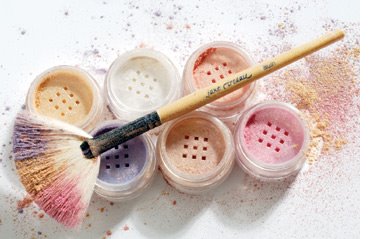 We recently lost actress Farrah Fawcett to colorectal cancer. Now a new study says women can protect themselves from the same fate by simply eating more vegetable salads. Here's what you need to know.- By Colette Bouchez
We recently lost actress Farrah Fawcett to colorectal cancer. Now a new study says women can protect themselves from the same fate by simply eating more vegetable salads. Here's what you need to know.- By Colette Bouchez
It's clear that any medical headlines hitting the front page these days are linked to the tragic and untimely death of Micheal Jackson.
But if you're a woman, it would be wise to pay attention to the less publicized, but possibly more relevant cause of death of superstar – Farrah Fawcett . Succumbing to rectal cancer, Fawcett is within a growing number of women diagnosed with this disease, as well as colon cancer every year.
And now a new study shows that a simple dietary change may have saved her life.
While once thought of as primarily a “man's problem” ( I lost my own father to colon cancer more than 30 yars ago) according to the American Cancer Society estimates today, the number of women with colon cancer is greater than men. Indeed, according to ACS estimates in 2009 some 54,000 women are expected to be diagnosed with this disease, compared to 52,000 men. An additional 17,000 women are expected to be diagnosed with rectal cancer – the type that killed Farah Fawcett at age 62. Nearly 25,000 women are expected to die of these two diseases in 2009, predicts ACS.
But this week, the news is encouraging. A new study shows we can substantially reduce our risks by as much as 70% - and all it's going to take is adding a few more leafy and green vegetables to our dinner plate. As the most powerful source of the B vitamin folate, a salad a day may just keep colon cancer away!
Indeed, in a new study published this week in the European Journal of Clinical Nutrition, researchers from Seoul, Korea found that women who had the highest intake of foods rich in the B vitamin folate experienced up to a 66 percent reduction in the risk of colon cancer and a 70% reduction in the risk of rectal cancer.
“We found a statistically significant relationship between higher dietary folate intake and reduced risk of CRC, colon cancer and rectal cancer in women,” wrote the researchers, who hail from Korea’s National Cancer Center, Hallym University, Inha University College of Medicine, and Seoul National University.
Study Details & Why A Vitamin Pill Won't Help You
In this hospital-based study doctors analyzed dietary data from nearly 600 men and women between the ages of 30 and 79, all of whom had been diagnosed with colorectal, colon or rectal cancer. Among the factors they sought out were the patients intake of foods high in the B vitamin folate – such as cow peas, chick peas, spinach,lentils, broccoli, peas,and lettuce.
The researchers then compared the dietary data to that of some 500 case controls – men and women in the same age group who did not have this cancer.
The Result: Women who had the highest intake of foods rich in folate had up to a 64% reduced risk of colorectal cancer, a 66% reduce risk of colon cancer, and up to a 70% reduced risk of rectal cancer.
Interestingly, the men in the study did not appear to gain cancer-reducing benefit from eating these same high folate foods.
But if you think you can cheat the system by continuing to eat cake instead of salad and just get your folate from a vitamin pill ….not so fast! A growing body of evidence suggests that folic acid, the synthetic form of folate that is not only basis for vitamin supplements but also the fortification found in founds like flour and other grain products, may not offer you the same protective effects. In fact, for some folks, synthetic folic acid supplements could even be harmful.
Folic Acid Supplements: What You Should Know
Clearly, some studies, like the one published today, offer evidence that folate can reduce the risk of some cancers in women. Other research, however, has shown the opposite – and now some experts think they know why.
The key appears to be the difference between the way the body processes the natural folate found in foods and how it deals with it's synthetic cousin folic acid, which is what you get in both vitamin pills and enriched grain products.
More specifically, as the synthetic folic acid passes through the intestinal wall, a conversion process must take place to turn it into folate – which the body can use. Now there is some evidence that a type of oxidation that occurs during the process can be harmful to some people.
“In select circumstances in which an individual who harbours a pre-cancerous or cancerous tumour consumes too much folic acid, the additional amounts of folate may instead facilitate the promotion of cancer,” says Joel Mason, a researcher from USDA Human Nutrition Research Center on Aging at Tufts University in an article featured in the journal Nutrition Review.
Mason adds that "The fact that folic acid, which is not a naturally occurring form of the vitamin, is used by food and pharmaceutical industries for fortification and supplementation is potentially of importance.”
So, while natural folate found in foods may be beneficial, synthetic folic acid may not be – at least when it comes to colon cancer.
Women, Pregnancy and The Folic Acid Controversy
For women, however, the controversy over synthetic vs natural folate takes on even greater meaning in light of the overwhelming medical literature showing that adequate folate intake during pregnancy remains the single most important way to reduce the risk of neural tube defects, and related forms of mental retardation.
As a result, all pregnant women in the US, Canada and most nations worldwide are now prescribed folic acid supplements both before and during their pregnancy. What's more to help ensure adequate folate intake even more, in 1998 both the US and Canada ruled that all grain products sold in these countries must be fortified with folic acid.
But does folic acid offer the same level of pregnancy protection that was found in the natural folate studies? And could it ever be harmful?
Most obstetricians agree that folic acid supplements used during pregnancy at the prescribed amount ( up to 400 mcg daily) are helpful and not likely to cause any harm.
Indeed, preliminary data has shown that the supplementation has led to as high as a 50% reduction in neural tube defects in the US, Canada and Chile. And while the European jury is still out as to how much it's really helped, results are expected to mirror those found elsewhere.
That said, to help further insure the health of your baby – and begin to insure your own good health against colorectal cancer now and in the future - most experts agree it's a good idea to keep whole, healthy food sources of folate on your shopping list as well – including spinach, brocholi, cow beans, chick peas, lentils, peas and lettuce.
Not coincidentally, these same foods have also been linked to a lower incidence of a number of cancers, as well as a decrease in heart disease
You may also be interested in reading:
Study:Why Salad Can Help You Lose More Weight
Study: Nutrients That Can Stop Hair Loss, Cut Cancer Risks
Nutrients To Help You Get Pregnant Fast
Or visit www.RedDressDiary.com - The Source for Health & Beauty For Women Over 40! Copyright by Colette Bouchez 2009 - All Rights Reserved. In addition to US Copyright, the text of this RedDressDiary article is licensed under a Creative Commons Attribution-ShareAlike 3.0 License. All formatting and style elements of this page are not available under this license, and Colette Bouchez retains all rights in those elements.
Wednesday, July 8, 2009
Study: A Salad A Day Could Keep This Cancer Away
Subscribe to:
Post Comments (Atom)




































No comments:
Post a Comment